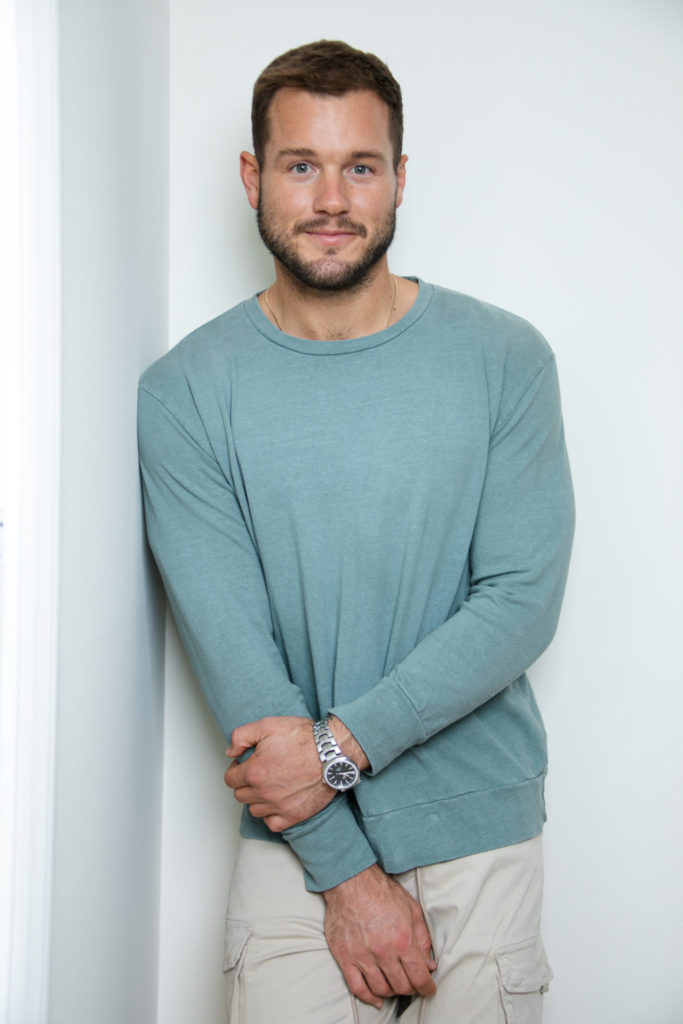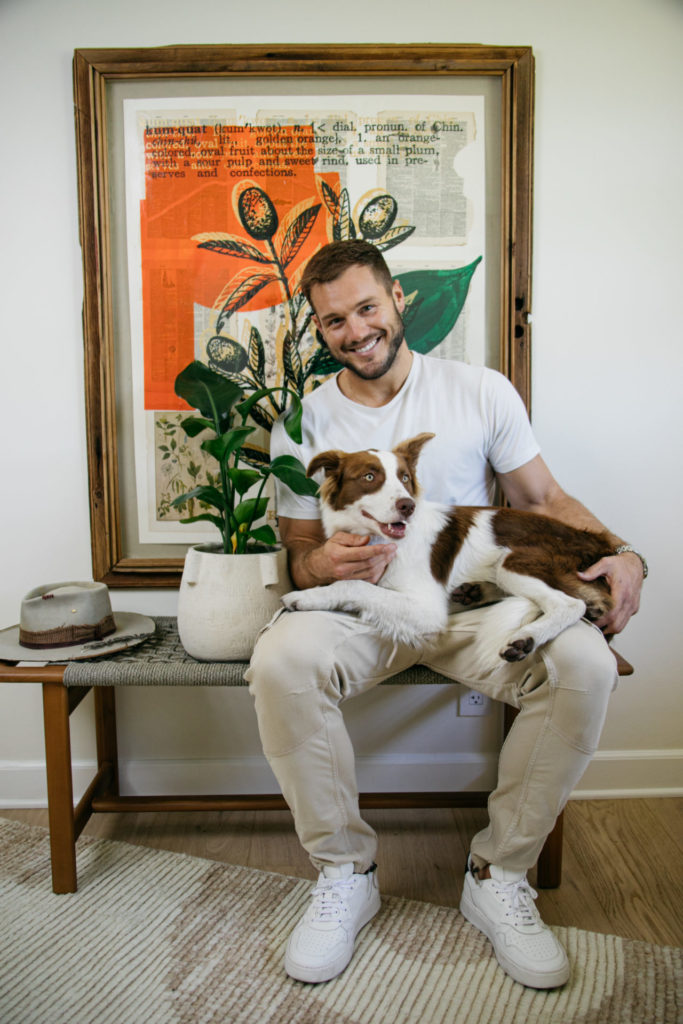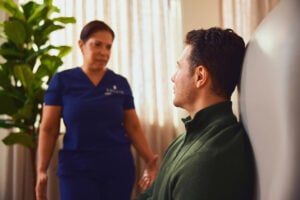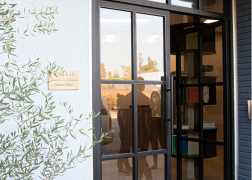Before you came out, you were in two of the more heteronormative things on TV—the NFL and The Bachelor. Can you talk a little about the toll that took on your mental health?
I think I put so much pressure on myself to be “masculine” and macho. I needed to be the straight American football player that everyone told me I was. I really got good at hiding it, so good that I actually believed I could turn myself “straight.” All of those situations led to my choice to do the show. I was trying to “turn myself straight” once and for all… which was not healthy. Putting myself in that position was a bad choice and took a severe toll on my mental health.
Did it feel like there was this huge gulf between having to put on a show in front of the cameras while hurting so badly on the inside?
I obviously enjoyed the TV and entertainment portion of it all, but what hurt the most was when I wanted to live my truth I couldn’t. I couldn’t say as the lead of The Bachelor that I was questioning my sexuality. That I haven’t had the time or safety to explore that in a healthy way. So I had to internalize all of my feelings and process it alone, which led me to believe I could move past being gay, until I couldn’t.
You were struggling with so much anxiety and depression during The Bachelor that you were heavily medicated during filming. What was that like, and were there ever times you didn’t feel seen and heard by the doctors who were treating you?
I think medication can be great in certain circumstances, but for me the meditation was a mask. I don’t think the people prescribing it to me knew why I needed it. None of them ever really asked. They just assumed stress and what comes with being in the limelight were the only causes.
How were you able to overcome your mental health crisis? What part did finally coming out—on live TV, no less!—play in all of that?
I overcame my mental health crisis by hitting rock bottom and asking for help. I moved back in with my dad, surrendered my medication, and got professional help by both a therapist and psychiatrist. Filming my coming out experience was after I felt I was in a healthy enough headspace to try and make a difference for a lot of young men in middle America.

With 4 out of 10 of LGBTQ youth seriously considering attempting suicide, what advice do you have for them—and to anyone quietly struggling with their mental health?
ASK FOR HELP. It seems so daunting, but ask that one friend or family member that you trust the most. If you don’t trust anyone, see a doctor or therapist.
What do you think are the biggest misconceptions about depression, anxiety, and suicidal thoughts? What do you wish you could make the public understand better?
That just because someone is depressed or has anxiety it doesn’t mean they are broken. It doesn’t mean that they can’t get better and it doesn’t mean that it can’t come and go. Just like so many other illnesses and diseases out there, you need to get professional help and recover. The stigma of someone being “crazy” or “out of it” needs to end.
How has your experience inspired you to expand your foundation to include mental health?
My experience as well as the cystic fibrosis community has naturally led me more into the mental health sector. Obviously my life has changed a lot over the last few years and in front of the public. I needed help and got it. People living with CF have a higher risk for anxiety and depression. I’m excited to continue to fight for that community and represent a cause that is so important to me.
You’ve also had to endure a lot of physical pain as a football player. What kind of chronic ailments have you had to deal with since then, and what have you done to treat them?
I have been pretty lucky with my injuries. I have suffered two torn shoulder ligaments, one broken shoulder, two torn hamstrings and torn rib cartilage. I stay on top of that by staying active and incorporating stretching and dynamic movements. I’m a big believer in a body in motion stays in motion.
How has Sollis been able to support you on your medical journey?
I went into Sollis with wrist pain. I was able to get X-rays done right away and the doctor determined I broke my wrist. It was such an efficient diagnosis and saved me a lot of time waiting. It was incredible!
Any good words to live by?
The secret to live by is to focus all your energy not on fighting the old, but building the new.








